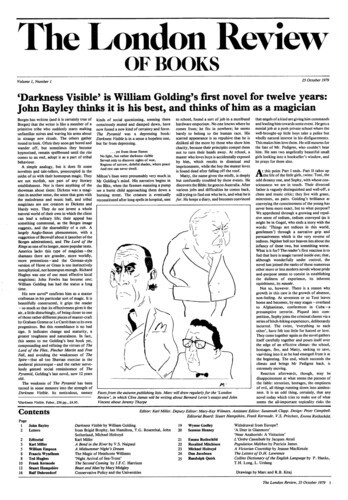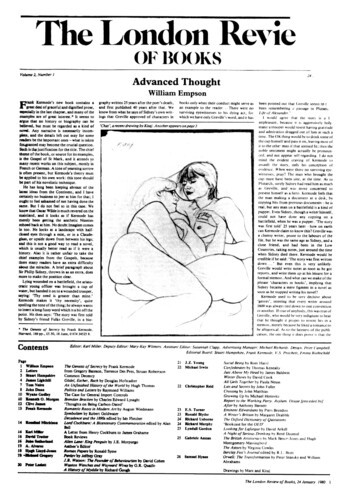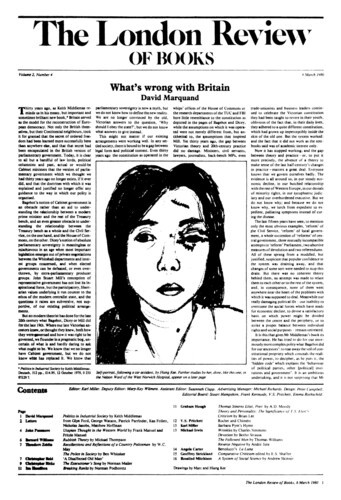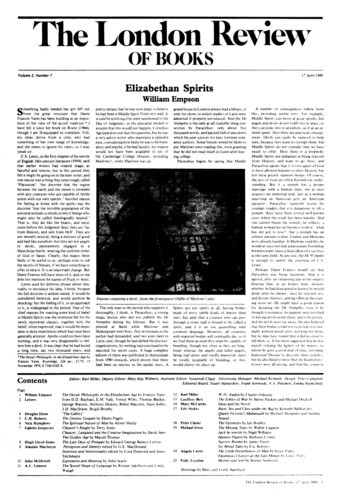The London Review of Books
Karl Miller, 25 October 1979
The London Review of Books is something new. This, for the first time, is it. The journal will appear fortnightly, with a summer layoff, and it will appear, for the present, marsupially or bisectingly, together with the New York Review of Books. Editorially, it will be separate and independent.
The writers we publish, and the writers and publishers whose books we review, will generally be...




